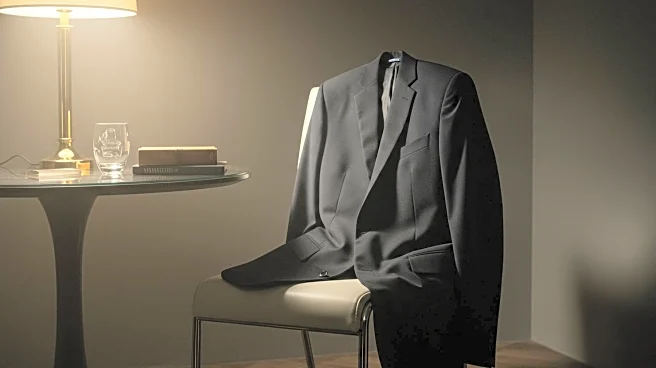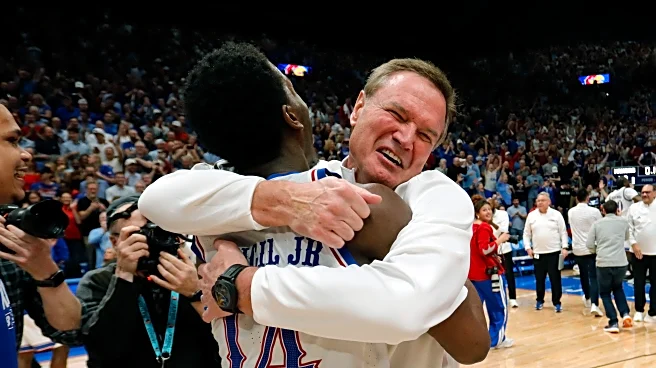What is the story about?
What's Happening?
Tracee Ellis Ross made a striking appearance on 'Jimmy Kimmel Live!' in Los Angeles, wearing a menswear-inspired ensemble designed by Willy Chavarria. The Emmy Award-nominated actress donned oversized charcoal gray trousers, cinched with a black belt featuring a small chain of keys, and a pinstripe collared shirt paired with a matching tie. Her look was completed with black patent leather loafers, statement rings, and bold square-frame sunglasses. The styling was curated by Karla Welch, with hair by Marcia Hamilton and makeup by Molly Greenwald. Willy Chavarria, known for his eponymous label, celebrated its 10-year anniversary during Paris Fashion Week and was recognized as the CFDA Menswear Designer of the Year in 2024.
Why It's Important?
Tracee Ellis Ross's choice to wear Willy Chavarria's menswear highlights the growing trend of gender-fluid fashion in the entertainment industry. This style choice reflects a broader cultural shift towards inclusivity and self-expression, challenging traditional gender norms. Ross's influence as a prominent figure in Hollywood can inspire audiences to embrace diverse fashion choices, potentially impacting fashion industry trends and consumer behavior. The collaboration also underscores Willy Chavarria's rising prominence in the fashion world, showcasing his designs to a wider audience and solidifying his status as a leading designer.
What's Next?
As gender-fluid fashion continues to gain traction, more celebrities and designers may explore similar styles, further blurring the lines between traditional menswear and womenswear. This could lead to increased demand for versatile clothing options and influence future fashion collections. Additionally, Tracee Ellis Ross's fashion choices may inspire other public figures to express themselves through bold and unconventional styles, potentially leading to more diverse representation in media and fashion.
Beyond the Headlines
The embrace of menswear by female celebrities like Tracee Ellis Ross may contribute to a broader cultural acceptance of non-binary fashion, encouraging individuals to express their identities without conforming to traditional gender roles. This shift could have long-term implications for societal norms and the fashion industry's approach to design and marketing, promoting inclusivity and diversity.
















